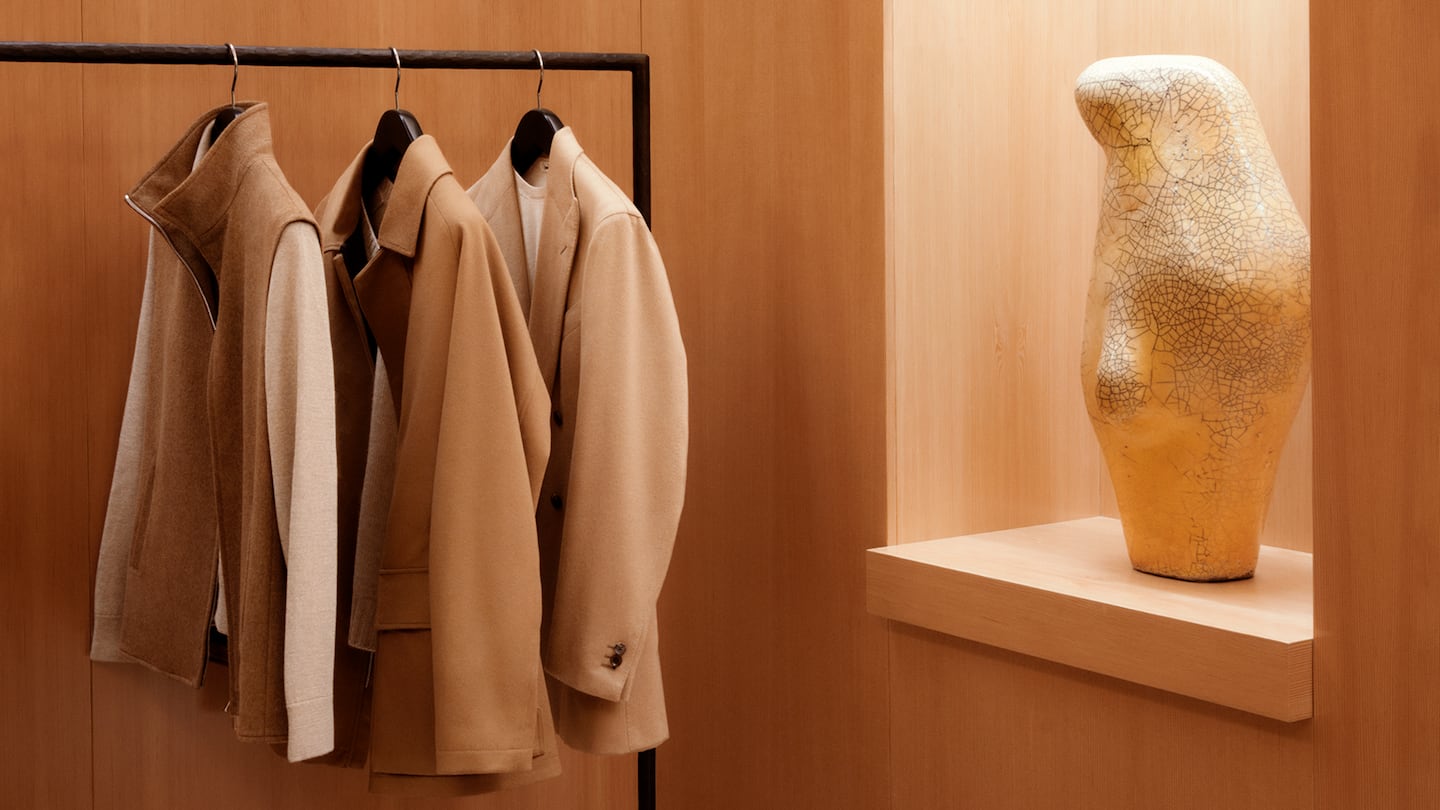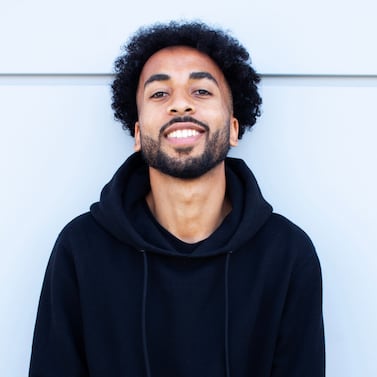
The Business of Fashion
Agenda-setting intelligence, analysis and advice for the global fashion community.

Agenda-setting intelligence, analysis and advice for the global fashion community.

The pandemic heralded the start of the work-from-home era and the death of the suit. Sure enough, there were casualties.
Gieves & Hawkes, the 250-year-old Savile Row tailor, was put up for sale in July following the liquidation of its Hong Kong-based parent company; British suit maker TM Lewin went into administration for the second time in March; and in December 2020, LVMH shuttered shirtmaker Thomas Pink.
But even amidst the carnage, some designers were already plotting a comeback for high-end blazers and trousers. That meant reimagining tailoring for a more casual world where wearing athleisure to the office had become the norm for many white-collar workers – if they were going into the office at all.
At the forefront of this revival are relatively new, independently-owned suit makers like Swedish tailor Saman Amel and New York-based Stòffa that serve savvy customers interested in not only made-to-measure blazers but also tailored casual pieces too, like overcoats, trousers and knitwear.
ADVERTISEMENT
This is part of a wider trend that has seen larger brands like Drake’s as well as retailers like Mytheresa ride suddenly booming demand for suits and accompanying smart-casual clothing.
Mr Porter has added more suiting options this year in response to consumer demand for high-end craft tailoring. The e-commerce retailer has introduced brands like The Row and new formal styles from the likes of Tom Ford and Gucci. Others are also betting on demand for custom services. UK department store chain Flannels invested in a tailoring hub in its recently opened Liverpool location, allowing menswear shoppers to select fabrics or styles from over 10 participating brands and buy pieces made to order.
Newer brands are less under the influence of the category’s traditions of strictly formal suiting and less in favour of accessories like ties, allowing them to appeal to new groups of menswear consumers.
“Savile Row brands have been slow to pivot to the rapid casualisation we’ve seen which the pandemic has only accelerated,” said Douglas Hand, a fashion lawyer and menswear author, who relies on Stòffa (among others) for made-to-measure outfits, including more casual styles, such as merino wool vests and overcoats. “New brands are less wedded to the suit and more about business casual offerings and everyday pieces.”
Ultimately, the pandemic didn’t kill demand for formal suits, but simply put a hold on it.
For two decades, Waraire Boswell owned and operated a booming suiting business serving a Los Angeles clientele that included LeBron James, Dwayne Wade and the late Kobe Bryant, as well as a range of Hollywood talent agents and attorneys.
When Covid-19 struck, Boswell feared his made-to-order business would dry up. He launched a ready-to-wear line at cheaper prices. But two years later, demand for his original bespoke services has totally recovered. Sales from bespoke clothing are expected to comfortably exceed pre-pandemic levels in 2022.
“Things flatlined for a while, but now people are travelling, throwing galas, doing business face-to-face, my business has really, really seen an uptick,” Boswell said.
ADVERTISEMENT
Brands are also serving the evolving menswear silhouette, which has shifted from street style staples like hoodies and sneakers toward a more tailored look — a preppy but still casual style popularised by brands like Aimé Leon Dore, Noah and Awake NY. This appeals to a new type of menswear customer who may not have considered buying suiting at all, pre-pandemic.
Swedish tailor Saman Amel saw a 25 percent to 30 percent sales increase year-over-year in 2021, said co-founder Dag Granath, while New York-based Stòffa, founded in 2014, doubled its revenue in 2020 and 2021. Stòffa is on course to continue its upward trajectory this year, according to founder Agyesh Madan.
Shoppers come for advice on their overall wardrobe, seeking additional touches from tailoring that would create a full personal style, whether it’s for dressing up or down. Waraire suits are produced by Boswell’s in-house tailoring partner, who has designed bespoke suits for over 55 years, while Saman Amel’s clothing is crafted by a handful of family-run tailoring houses across Italy.
“We’ve seen how modern dressers have re-purposed the suit to push boundaries and become more than a buttoned-up formality for the office,” said Mr Porter buying director Sam Kershaw.
Consumers aren’t just looking for bespoke suits: they’re seeking out the same level of attention to detail for other pieces too, like trousers and knitwear, designed to specific measurements for a personalised fit.
“There are so many benefits you get beyond well-fitting clothes,” said Thomas Nunekpeku, a 25-year-old who recently purchased a suit and zip-up sweater from a tailor in London. “With bespoke, you know exactly where your fabrics are coming from, and you can map out a plan to curate your entire wardrobe and style with the help of the tailor.”
By providing styling advice alongside well-fitting, bespoke clothing, younger tailoring businesses are solving a long-standing pain point for male shoppers, according to Douglas Hand.
“We are benefitting from a shift in society where men are coming to us not because they are particularly interested in tailoring, but because they want to consume clothes in a different way,” said Saman Amel’s Granath, noting that more customers are open to investing in a small selection of pieces to wear long-term, rather than buying trendy fast fashion in hauls.
ADVERTISEMENT
The growing desire for overall style guidance has also been driving sales for Stòffa.
“We get a lot more emails mentioning ‘wardrobe building,’” said Nicholas Ragosta, the brand’s head of sales. “Because we focus on a more casual style of clothing [than traditional tailoring], we’ve found there is a lot to be explored as to what made-to-measure can mean from a personality expression point of view.”
Even though it’s younger consumers that are driving relevance for brands like Saman Amel and Stòffa, older premium consumers still make up the bulk of their sales with large orders. Like any luxury brand, they have to invest in the retention of these high spenders through private shopping appointments, VIP dinners, and free travel to meet the founders.
“Fifty percent of our efforts go into curating a luxury hospitality environment to compliment our service as tailors and trusted advisors,” said Amel.
Brands anticipate demand in bespoke tailoring to continue to rise, as more consumers are interested in growing their personal style. Educating consumers on the value of shopping less frequently, but investing high-quality pieces each year or season, is the key to unlocking further sales, Amel added.
From casualisation to the decline of streetwear, BoF unpacks what’s driving the “unprecedented” boom in the men’s market.
CEO Gildo Zegna has to prove that the company's pivot from power suits to sneakers can continue to drive growth.
Luxury brands may have pivoted away from sneakers, puffer jackets and hoodies, but new brands like Corteiz and Free The Youth are making the case for street culture’s enduring relevance in fashion.

Daniel-Yaw Miller is Senior Editorial Associate at The Business of Fashion. He is based in London and covers menswear, streetwear and sport.
Nordstrom, Tod’s and L’Occitane are all pushing for privatisation. Ultimately, their fate will not be determined by whether they are under the scrutiny of public investors.
The company is in talks with potential investors after filing for insolvency in Europe and closing its US stores. Insiders say efforts to restore the brand to its 1980s heyday clashed with its owners’ desire to quickly juice sales in order to attract a buyer.
The humble trainer, once the reserve of football fans, Britpop kids and the odd skateboarder, has become as ubiquitous as battered Converse All Stars in the 00s indie sleaze years.
Manhattanites had little love for the $25 billion megaproject when it opened five years ago (the pandemic lockdowns didn't help, either). But a constantly shifting mix of stores, restaurants and experiences is now drawing large numbers of both locals and tourists.